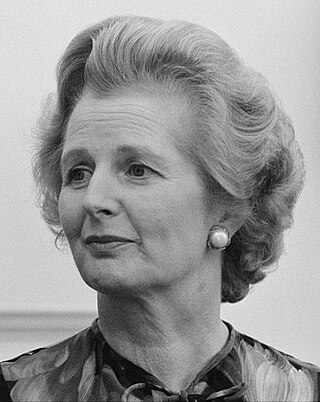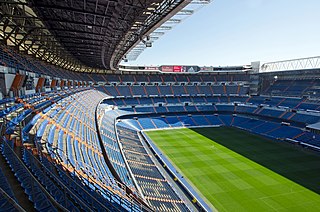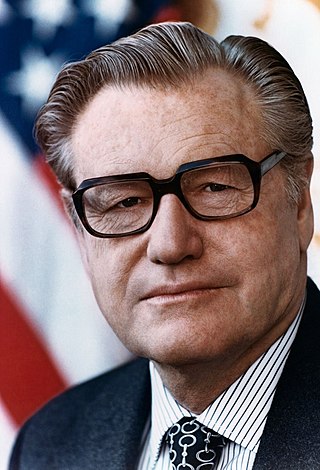
Andrew Johnson was the 17th president of the United States, serving from 1865 to 1869. He assumed the presidency following the assassination of Abraham Lincoln, as he was vice president at that time. Johnson was a Southern Democrat who ran with Abraham Lincoln on the National Union Party ticket, coming to office as the Civil War concluded. He favored quick restoration of the seceded states to the Union without protection for the newly freed people who were formerly enslaved as well as pardoning ex-Confederates. This led to conflict with the Republican-dominated Congress, culminating in his impeachment by the House of Representatives in 1868. He was acquitted in the Senate by one vote.

Imam is an Islamic leadership position. For Sunni Muslims, Imam is most commonly used as the title of a prayer leader of a mosque. In this context, imams may lead Islamic prayers, serve as community leaders, and provide religious guidance. Thus for Sunnis, anyone can study the basic Islamic sciences and become an imam.

James Earl Carter Jr. was an American politician and humanitarian who served as the 39th president of the United States from 1977 to 1981. A member of the Democratic Party, Carter served as the 76th governor of Georgia from 1971 to 1975 and in the Georgia State Senate from 1963 to 1967. He was the longest-lived president in U.S. history and the first to reach the age of 100.

Martin Ludwig Bormann was a German Nazi Party official and head of the Nazi Party Chancellery, private secretary to Adolf Hitler, and a war criminal. Bormann gained immense power by using his position as Hitler's private secretary to control the flow of information and access to Hitler. He used his position to create an extensive bureaucracy and involve himself as much as possible in the decision making.

Shinto is a religion originating in Japan. Classified as an East Asian religion by scholars of religion, its practitioners often regard it as Japan's indigenous religion and as a nature religion. Scholars sometimes call its practitioners Shintoists, although adherents rarely use that term themselves. There is no central authority in control of Shinto, with much diversity of belief and practice evident among practitioners.

Igor Fyodorovich Stravinsky was a Russian composer and conductor with French citizenship and American citizenship. He is widely considered one of the most important and influential composers of the 20th century and a pivotal figure in modernist music.

Charles II was King of Scotland from 1649 until 1651 and King of England, Scotland, and Ireland from the 1660 Restoration of the monarchy until his death in 1685.

Pyotr Alexeyevich Kropotkin was a Russian anarchist and geographer known as a proponent of anarchist communism.

The United States Department of Education is a cabinet-level department of the United States government. It began operating on May 4, 1980, having been created after the Department of Health, Education, and Welfare was split into the Department of Education and the Department of Health and Human Services by the Department of Education Organization Act, which President Jimmy Carter signed into law on October 17, 1979.

The 1979 United Kingdom general election was held on Thursday 3 May 1979 to elect 635 members to the House of Commons. The election was held following the defeat of the Labour government in a no-confidence motion on 28 March 1979, six months before the Parliament was due for dissolution in October 1979.

The Soviet–Afghan War took place in the Democratic Republic of Afghanistan from December 1979 to February 1989. Marking the beginning of the protracted Afghan conflict, it saw the Soviet Union and the Afghan military fight against the rebelling Afghan mujahideen. While they were backed by various countries and organizations, the majority of the mujahideen's support came from Pakistan, the United States, the United Kingdom, China, Iran, and the Arab states of the Persian Gulf, in addition to a large influx of foreign fighters known as the Afghan Arabs. American and British involvement on the side of the mujahideen escalated the Cold War, ending a short period of relaxed Soviet Union–United States relations. Combat took place throughout the 1980s, mostly in the Afghan countryside, as most of the country's cities remained under Soviet control. The conflict resulted in the deaths of one to three million Afghans, while millions more fled from the country as refugees; most externally displaced Afghans sought refuge in Pakistan and in Iran. Between 6.5 and 11.5% of Afghanistan's erstwhile population of 13.5 million people is estimated to have been killed over the course of the Soviet–Afghan War. The decade-long confrontation between the mujahideen and the Soviet and Afghan militaries inflicted grave destruction throughout Afghanistan and has also been cited by scholars as a significant factor that contributed to the dissolution of the Soviet Union in 1991; it is for this reason that the conflict is sometimes referred to as "the Soviet Union's Vietnam" in retrospective analyses.

The Japanese era name or nengō, is the first of the two elements that identify years in the Japanese era calendar scheme. The second element is a number which indicates the year number within the era meaning "origin, basis", followed by the literal "nen (年)" meaning "year".

Fifty-three United States diplomats and citizens were held hostage in Iran from November 4, 1979 to their release on January 20, 1981. They were taken as hostages by a group of armed Iranian college students who supported the Iranian Revolution, including Hossein Dehghan, Mohammad Ali Jafari and Mohammad Bagheri. The students took over the U.S. Embassy in Tehran. The crisis is considered a pivotal episode in the history of Iran–United States relations.

A drop in oil production in the wake of the Iranian revolution led to an energy crisis in 1979. Although the global oil supply only decreased by approximately four percent, the oil markets' reaction raised the price of crude oil drastically over the next 12 months, more than doubling it to $39.50 per barrel ($248/m3). The sudden increase in price was connected with fuel shortages similar to the 1973 oil crisis.

The Iranian revolution, also known as the 1979 revolution, or the Islamic revolution of 1979 was a series of events that culminated in the overthrow of the Pahlavi dynasty in 1979. The revolution led to the replacement of the Imperial State of Iran by the present-day Islamic Republic of Iran, as the monarchical government of Mohammad Reza Pahlavi was superseded by the theocratic Ayatollah Ruhollah Khomeini, a religious cleric who had headed one of the rebel factions. The ousting of Pahlavi, the last Shah of Iran, formally marked the end of Iran's historical monarchy.

Nosferatu the Vampyre is a 1979 gothic horror film directed and written by Werner Herzog. The film serves as both a remake of the 1922 film Nosferatu and an adaptation of Bram Stoker's 1897 novel Dracula. Herzog’s film is set in 19th-century Wismar, Germany and Transylvania. The picture stars Klaus Kinski as Count Dracula, Isabelle Adjani as Lucy Harker, Bruno Ganz as Jonathan Harker, and French artist-writer Roland Topor as Renfield. There are two different versions of the film, one in which the actors speak English, and one in which they speak German.

The 1979–80 season of the European Cup football club tournament was won by holders Nottingham Forest in the final against Hamburg. The winning goal was scored by John Robertson, who drilled the ball into the corner of the Hamburg net from outside the penalty area. Nottingham Forest remain the only side to have won the European Cup more times than their domestic top flight.

Jimmy Carter's tenure as the 39th president of the United States began with his inauguration on January 20, 1977, and ended on January 20, 1981. Carter, a Democrat from Georgia, took office following his narrow victory over Republican incumbent president Gerald Ford in the 1976 presidential election. His presidency ended following his landslide defeat in the 1980 presidential election to Republican Ronald Reagan, after one term in office. At the time of his death at the age of 100, he was the oldest living, longest-lived and longest-married president, and has the longest post-presidency.

Nelson Aldrich Rockefeller, sometimes referred to by his nickname Rocky, was the 41st vice president of the United States, serving from 1974 to 1977 under President Gerald Ford. He had previously served as the 49th governor of New York from 1959 to 1973, the state's longest-serving governor since the end of the Revolutionary War. Rockefeller was a member of the Republican Party and the wealthy Rockefeller family.

Alien is a 1979 science fiction horror film directed by Ridley Scott and written by Dan O'Bannon, based on a story by O'Bannon and Ronald Shusett. It follows a spaceship crew who investigate a derelict spaceship and are hunted by a deadly extraterrestrial creature. The film stars Tom Skerritt, Sigourney Weaver, Veronica Cartwright, Harry Dean Stanton, John Hurt, Ian Holm, and Yaphet Kotto. It was produced by Gordon Carroll, David Giler, and Walter Hill through their company Brandywine Productions and was distributed by 20th Century-Fox. Giler and Hill revised and made additions to the script; Shusett was the executive producer. The alien creatures and environments were designed by the Swiss artist H. R. Giger, while the concept artists Ron Cobb and Chris Foss designed the other sets.




















